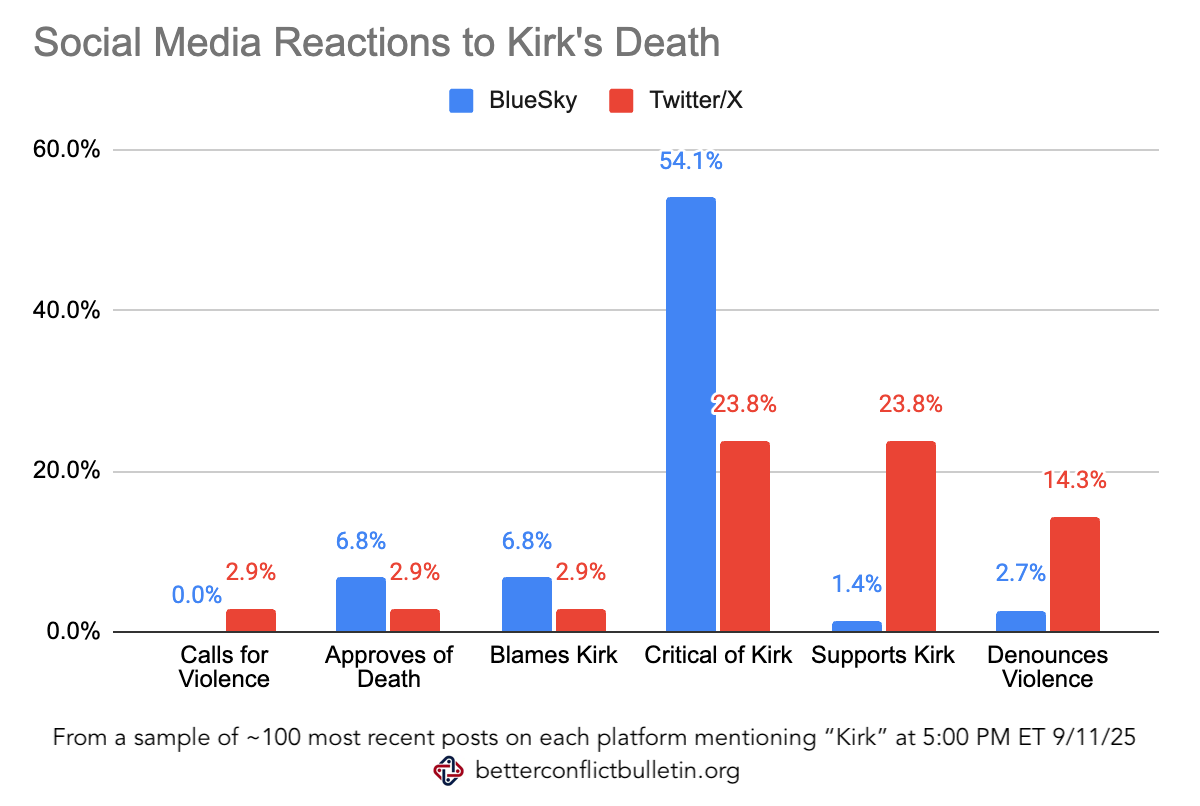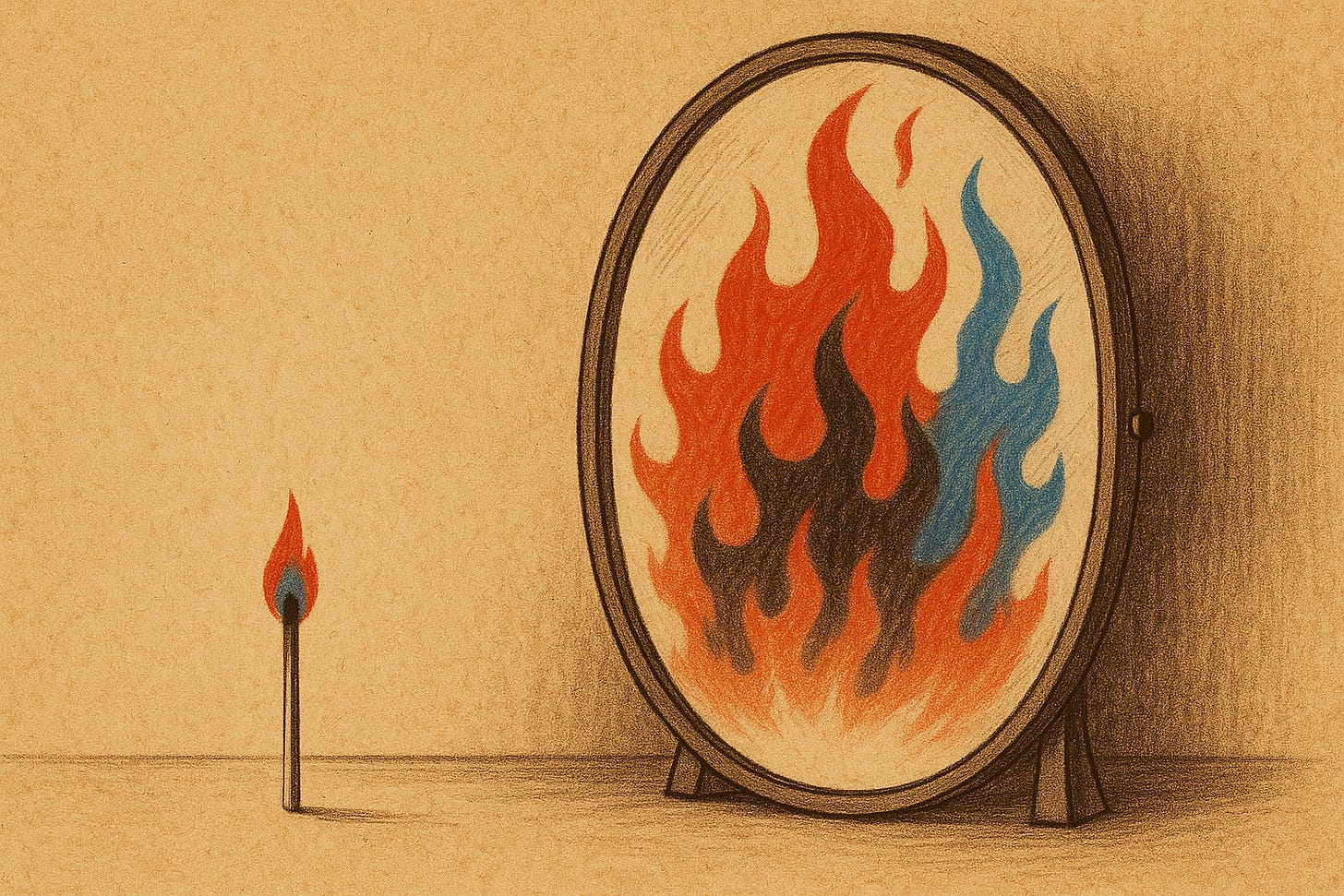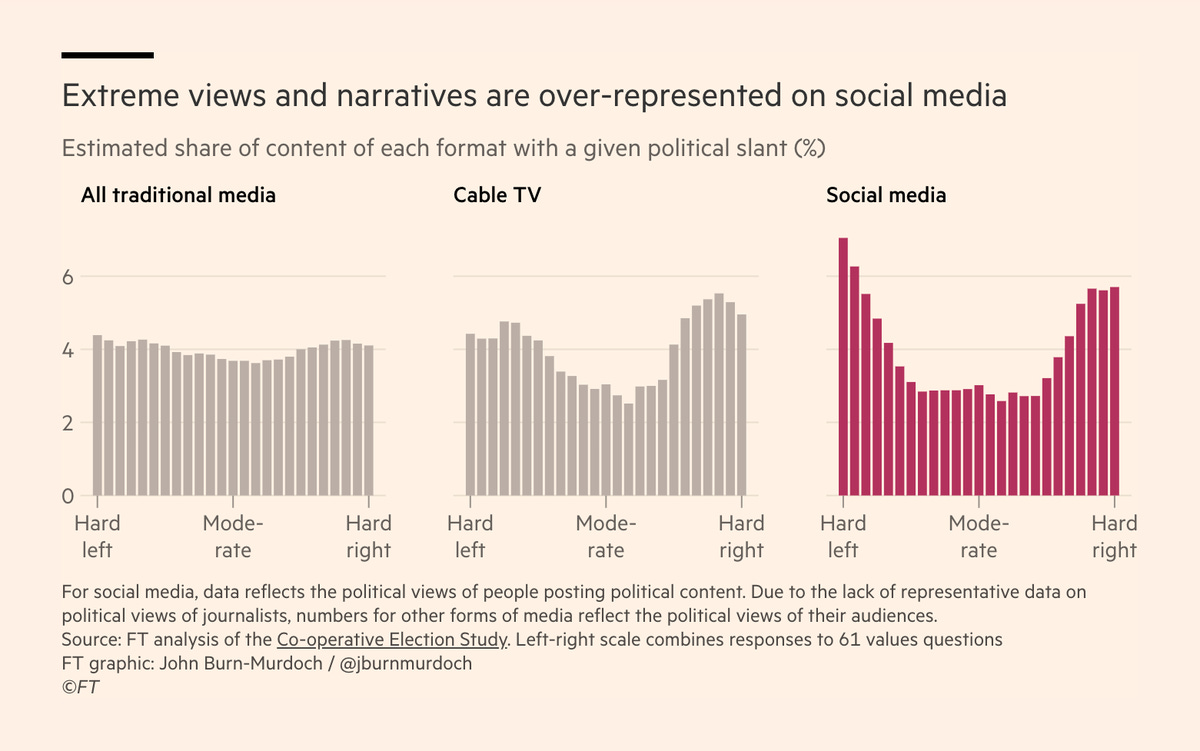How Many People Actually Approve of Kirk's Murder?
The worst posts are cherry-picked anecdotes, so I collected data instead - BCB #164
Atrocities are flashpoints in conflict escalation, so it’s no surprise that there are some who are calling for violent retaliation (on the Red side) or further murders (on the Blue side).
Some are trawling social media to collect these terrible, no-good takes into screenshot collages to prove how awful the other side is. (Here’s support for further violence on the left, and here it is on the right. Fair warning: these are hard to read.)
Actually, I have no doubt that the people collecting this vitriol mean well. They are hurt. They are scared, either of what Kirk represented or what his murder represents. They want justice and safety.
But I don’t think emphasizing the worst of the worst is helpful right now.
tl;dr my analysis of posts on X and BlueSky shows that only ~1.5% of them call for more violence. This low number is in line with previous research on support for political violence.
It didn’t help that a gruesome video of the event was circulating, before the platforms cracked down on it. (I don’t recommend looking for the footage of this or any other killing; psychological trauma is every bit as real as physical trauma, as those who work with such material professionally know.)
But let’s step back, take a breath, and ask: how many people are actually reacting to this atrocity with support for more violence? All major platforms have warned users that celebrating violence is against their terms of service, but there is in particular a vocal argument about whether BlueSky users support Kirk’s killing. No they don’t, yes they do, and more careful assessments saying it’s mixed.
But every take so far has been based on cherry-picked posts. So I decided to take a sample and do a quantitative analysis.
What Twitter and BlueSky users think of Kirk’s murder
At approximately 5:00 ET yesterday (Thursday 9/11/25) I searched for “Kirk” on both BlueSky and Twitter, making sure to select the “latest” option in both cases so I got a straight chronological sample, rather than search rankings. I then scrolled through each site and took ten screenshots of each timeline. I wrote a small script to feed these images into GPT5 to read the text into a CSV and classify them. I ended up with 74 BlueSky posts and 105 Twitter posts.

I classified the posts on six different axes (each post could be in more than one category) with the following instructions in the prompt, and hand checked the classification for every post marked “call for violence” and “approves of death.”
calls for violence - does the poster call for further violence, on either side (either similar killings or in retribution)
approves of death - is the poster pleased that Kirk is dead
blames - does the poster blame Kirk for his own death
critical - is the poster critical of Kirk or his family? Not just critical in general, but critical of Kirk
supports - is the poster supportive of Kirk or his family?
denounces violence - does the poster say that violence is wrong, bad, a tragedy etc.
While both platforms have both left and right leaning users, Twitter’s demographics are nearly balanced while BlueSky is predominantly, well, Blue. So this comparison is approximately everyone vs. lefties. Here’s what stands out to me:
Almost no one was calling for more violence on either platform. We actually had zero calls for violence in our BlueSky posts, and 3 in our Twitter posts. The sample size limits accuracy, but the true numbers are easily <3%, in line with broader estimates of support for political violence generally.
About 5% approved of his death. This is the subtle but important difference between “I’m glad it happened” and “I want it to happen again.” There were 5 such posts on BlueSky and (6.8%) vs. 3 on Twitter (2.9)%.
BlueSky posts were much more critical of Kirk. 54% of BlueSky posts expressed criticism of Kirk or his politics, while only 25% of Twitter posts did. This isn’t a surprise, given the politics of the platforms.
Twitter posts were much more likely to denounce violence. 14% of posts on Twitter explicitly rejected violence, while only 3% of BlueSky posts did.
So yes, BlueSky was more hostile to Kirk. But if you take only one thing from this post, it’s this: Do not believe claims that large percentages of people (on either side) support political violence! Such estimates are very inflated, and it takes careful surveys to find accurate numbers (because real support is rare). My quick quantitative estimate supports the previous research in this area — meaning that those collections of the worst reactions are cherry-picked and not representative of general sentiment.
Does social media exaggerate support for violence?
Yes. There was a nice visualization of this effect in the Financial Times just last week. It’s a problem with cable TV news as well.
If you saw a bunch of gruesome and hateful stuff online in the last few days, this is probably why. (My sample was intentionally a sip from chronological search results to avoid the algorithm.) This happens because people pay attention to things that are horrifying or frightening, and attention is the primary signal that social media algorithms use to decide what content is valuable. When you stop scrolling and watch something, that signal is recorded. The use of such attention signals isn't uniformly a bad idea — we also pay attention to things that are good for us — but in cases like this it has perverse effects. See also What’s Right and What’s Wrong with Optimizing for Engagement.
As a media algorithm designer, the question I’ve been asking myself for the last two days is, what should social media have done here? Clearly, the answer isn’t hiding the event — it’s legitimately major political news. But there’s a happy medium somewhere, and the most vitriolic responses are neither representative nor helpful. Fortunately, we do know how to build social media algorithms that reduce conflict rather than stoking it. It remains to implement these techniques.
The other very interesting question is what actually happened in terms of algorithms on X and follow networks on BlueSky, i.e. how many people were exposed to a call for violence or approval of it? My method was designed to count content, not exposure, because I wanted an estimate of percentage of people.
What are political leaders saying?
While citizens might not want violence, the tone that leaders set has a large effect on whether there will be further violence by supporters, as Rachel Kleinfeld has painstakingly documented.
Democratic leaders (both politicians and pundits) are overwhelmingly condemning the violence, e.g. Barack Obama, Gavin Newsom, Ezra Klein. Some such as Ilhan Omar have been much more critical of Kirk, but even she denounced violence.
Some Republicans have also attempted a conciliatory tone, including Utah Gov. Spencer Cox, who has previously supported a “non-aggression pact” in American politics.
Trump was less measured, blaming the “radical left”, though he later explicitly called for non-violent responses. Elon Musk called the “left” the “party of murder” and said “our choice is to fight or die.” Long time right-wing influencer Mike Cernovich was vitriolic.
Trump’s forceful reaction to Kirk’s killing contrasts with his response to previous political violence against Democratic politicians. He was much more muted in his response to the killing of Minnesota representative Melissa Hortman, and joked about the attack on Nancy Pelosi’s husband.
Both sides are currently scrambling to prove that the shooter belonged to the other side. Thus, the usual rush to assign group membership to villains is playing out. Republicans in Congress have called for an investigation of the “radical left.” The actual evidence on the shooter’s politics seems mixed at the moment, and there isn’t yet any connection to organized violence.
Happily, there have been a number of joint statements from Republican and Democrat groups calling for calm and unity.
Coda
Edit: the most interesting methodological responses I’ve gotten to this post:
this doesn’t count posts that the platforms have moderated away (true, and calls for violence aren’t allowed)
a larger sample size would be nice (yup)
searching for “Kirk” doesn't pick up "Ben Shapiro next" type posts, and there are a fair number of these.
So the true numbers could well be higher. But I’ve also heard,
how many of the posts in the sample were from bots? (I have no idea! And there have definitely been bot networks designed to sow division)
aren’t people who are online and posting about politics a weird subgroup that is likely to be more extreme than average? (well, yes)
there’s a post about Captain Kirk in there (lol! I’m glad someone looked at the data though!)
All of which would make the numbers lower. I’m still betting these estimates are way better than hand-selecting bad takes, though.
Quote of the Week
One thing that's clear from the online debate over whether the left or the right is more violent is that many people have an encyclopedic command of the attacks perpetrated by the other side, and have memory-holed attacks by their co-ideologists.




Excellent work in a shareable format!